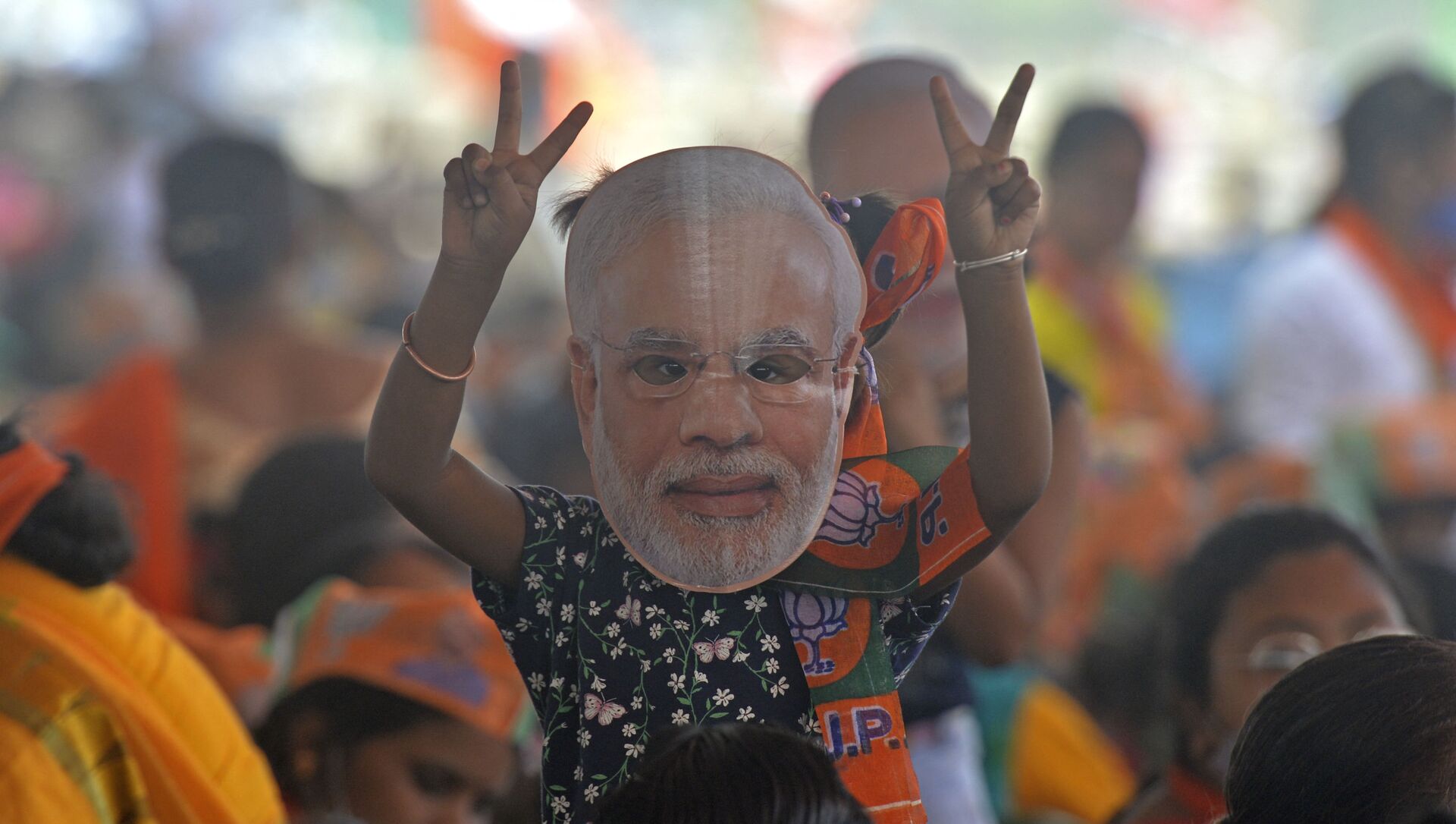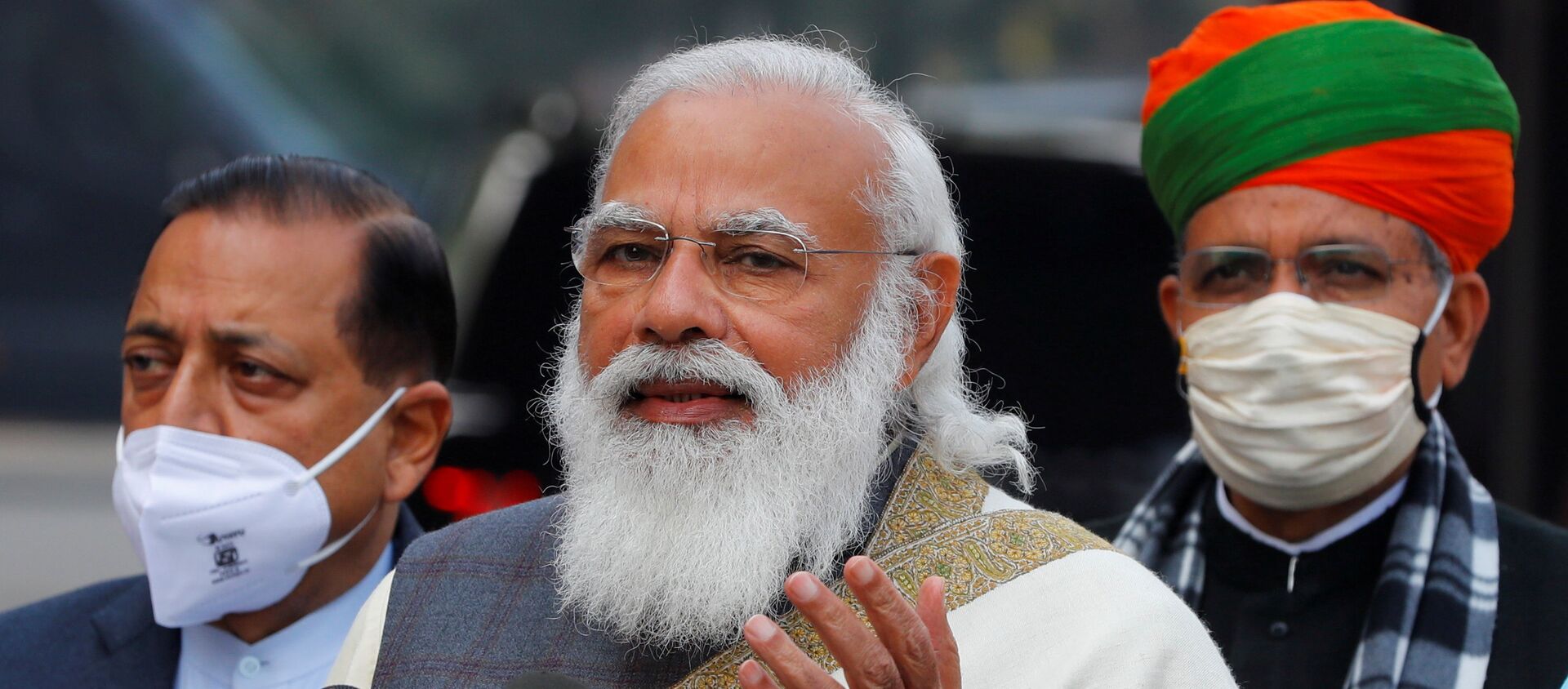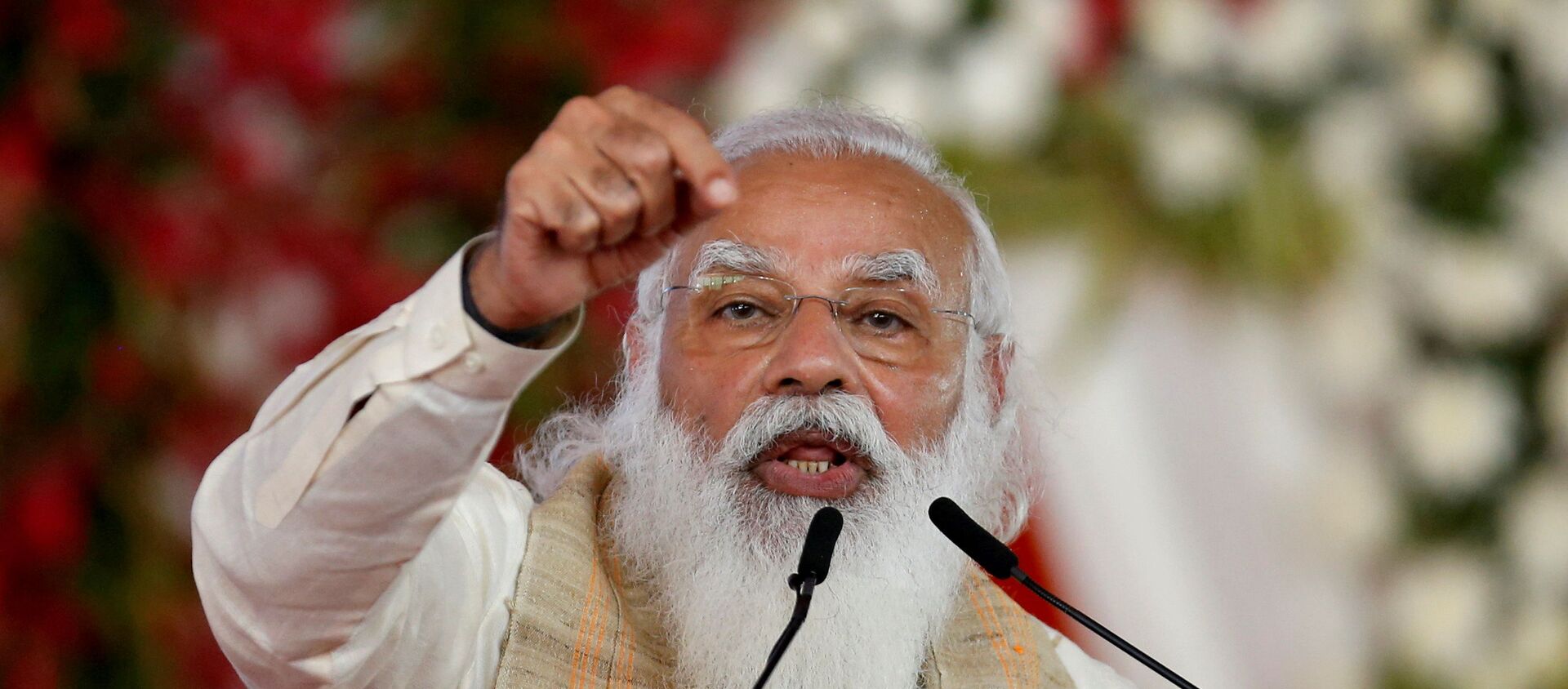While opposition parties in India continue to lack support since May 2014 when the Narendra Modi-led BJP government came to power, the devastating second wave of COVID-19 has challenged the public's trust in his leadership, as reflected in his dwindling popularity ratings.
According to US data intelligence company Morning Consult, 64 percent of people surveyed approve of his leadership, compared to 34 percent of people who disapprove, giving Modi an overall score of 66, his lowest since the company started analysing his popularity in August 2019.
What's more, his firm stance regarding the 2019 Citizenship Amendment Act, which amended the law to fast-track citizenship for religious minorities, specifically Hindus, Sikhs, Buddhists, Jains, Parsis and Christians, from Afghanistan, Bangladesh and Pakistan, strengthened his image as a Hindu leader.
However, Modi's handling of the pandemic has left many people in the country questioning his leadership.
“The way people have suffered is disheartening. But, I don’t think that his popularity is on such a decline that he is going to lose elections even if held in the next 2-3 months,” Sanjay Kumar, a Delhi based political analyst, told Sputnik.
Other obstacles stand in Modi's way, though. He's facing an uphill battle to fulfil the promises his government made to farmers about doubling their incomes by 2022. India’s agricultural sector was touted as a silver lining amid the chaos wrought by COVID during the last fiscal year (2020-21), with farming and allied activities clocking a growth of 3.4 percent during 2020-21, even as farmers in the country continue to protest three controversial farm laws passed by the government, which they claim leaves them at the mercy of big corporations and diminished their incomes.
Nilanjan Mukhopadhyay, an author and political analyst, says the public anger with PM Modi is justified because he set the bar too high for his government and made people believe all of his promises would come good. "Modi hai to mumkin hai" ("Everything is possible if Modi is in power") was the slogan used during his election campaigns.
One of PM Modi’s most ambitious projects – a bullet train – was supposed to be commissioned by December 2023. However, the government looks set to miss out on the date because it's failed to acquire land for the project in Maharashtra. The project will cost an estimated $15 billion.
Challenging 2024 Elections?
Perception/image management is an art the Modi government has mastered in recent years to win and maintain support, but it doesn't seem to be working any more due to the pandemic. Even as the country was hit by the second COVID wave, PM Modi’s government was busy focussed on what it does best: brand building.
Over the last two months, as people run from pillar to post to find beds and oxygen cylinders for their loved ones, image management continued to be the government's top priority. The country’s poor health infrastructure has been completely exposed.
However, Sanjay Kumar, a political expert, told Sputnik that people should not draw conclusions about what is going to happen in 2024 based on the current situation.
“The general elections are a long way, three years from now, and things can change drastically. Even at this moment I don’t think his popularity has gone down to a certain extent that he will lose. Even today hypothetically, Lok sabha elections are held tomorrow, BJP would still be the single largest party and maybe BJP will have double the number of seats compared to its nearest rival, that is, Congress,” Kumar added.
Mukhopadhyay says that Modi’s "honeymoon period" is over and his image is already in tatters due to his mishandling of the COVID crisis and vaccination programme.
The analyst adds that Modi still has three years to improve his standing before the 2024 elections. lawlessness as a failing economy and poverty looms on the horizon.
“PM Modi faces an additional burden of running a regime of ‘yes men,’ personally handpicked by him and having no courage to show him the mirror whenever required,” he said, adding that there is of course, the worrying sense that when everything fails, political leaders often fall back on tried and tested formulae. “In Modi’s case, the temptation would be to resort to religious polarisation. But repeating a game all too often, enables both adversaries and spectators to see through the moves,” he remarked.




